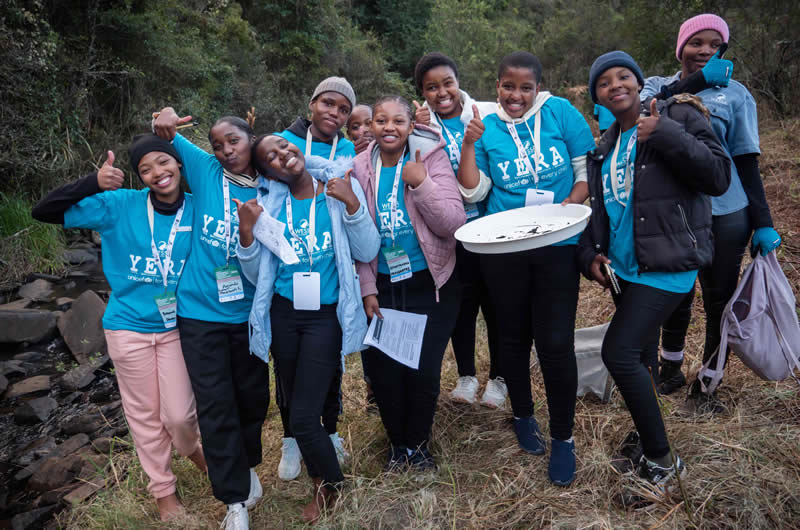Young people across South Africa are being empowered to investigate, document, and communicate environmental issues in their communities.
Through the ‘Youth Environmental Reporters and Advocates’ (YERA) programme, led by UNICEF South Africa and WESSA (Wildlife and Environment Society of South Africa), in collaboration with the Department of Basic Education, we aim to build learners’ climate literacy and environmental knowledge, and enhance communication and reporting capacities on the local issues that matter to them.
 “I am excited to learn how to raise my voice to create more awareness about the pressing environmental issues in our school and community,” said Saron Gidiso, a grade 10 learner at Marklands Secondary in Chatsworth. Another grade 10 learner, Imithle Mkhize, from Glenhaven Secondary in Tongaat stressed the importance of taking action now so that authorities could address the issues of water shortages, pollution and littering to create a more pleasant environment.
“I am excited to learn how to raise my voice to create more awareness about the pressing environmental issues in our school and community,” said Saron Gidiso, a grade 10 learner at Marklands Secondary in Chatsworth. Another grade 10 learner, Imithle Mkhize, from Glenhaven Secondary in Tongaat stressed the importance of taking action now so that authorities could address the issues of water shortages, pollution and littering to create a more pleasant environment.
“If we don’t speak about it as the youth, then who will?” she said. “These are things that affect us in our daily lives. We see it. We might turn our heads when we see a piece of paper and ignore it, but it affects us in the long run.”
Over the next eight months, the YERA programme will be implemented across four provinces – KwaZulu-Natal, Western Cape, Northern Cape, and Eastern Cape. It will target 40 schools (ten in each province), empowering 400 young reporters.
“The YERA programme embodies our commitment to environmental and social justice,” said Cindy Cloete, WESSA CEO. “By empowering young people, we are shaping a new generation of environmental champions who will lead the fight against climate change and advocate for sustainable solutions. We are thrilled to partner with UNICEF on this critical initiative and look forward to its transformative impact.”
Young people’s voices, particularly girls, often remain stifled, disconnected, and under-supported in the vital call for urgent action against the climate crisis and other environmental challenges they face. The ‘Climate, Energy, and Environment Landscape Analysis for Children in South Africa’, released by UNICEF South Africa in late 2023, reiterated the importance of increasing the visibility of children and young people in the climate and environment agenda to ensure policies and actions that respond to their specific needs.
“Empowering learners and young people, particularly girls, through education and nurturing their skills will build on their local knowledge to help raise their voices and strengthen action on local climate and environmental challenges,” said Christine Muhigana, UNICEF South Africa Representative.
“Young people are exposed to climate and environmental challenges today, they are best placed to tell that story and we need to respond to their needs by directly influencing climate policies and related community level adaption efforts,” added Muhigana.
Through a series of training, the programme will educate participants in investigative journalism, environmental science, and advocacy skills to enable young reporters to be champions of the environment. The workshops will utilise WESSA’s ‘Young Reporters for the Environment’ (YRE) methodology, with one of the key outputs being journalistic works produced by each participating school for distribution across a range of online and media platforms.
By working together, we can all ensure that youth in South Africa, especially girls, are equipped with the knowledge, skills, and platforms needed to raise awareness, influence policy, advocate for the environment, and take meaningful action.
“This programme is an important step forward in further nurturing environmental awareness among learners in South Africa and we hope the programme can be expanded in the coming months and years to benefit more South African schools,” said the KZN Department of Basic Education acting Chief Education Specialist, Lazi Mtwa.
The programme is made possible thanks to generous funding through the UNICEF Canada National Committee.
Watch the launch of the new programme.
For more information about the YERA programme and how you can get involved, contact Nomfundo Ndlovu at nomfundo.ndlovu@wessa.co.za

